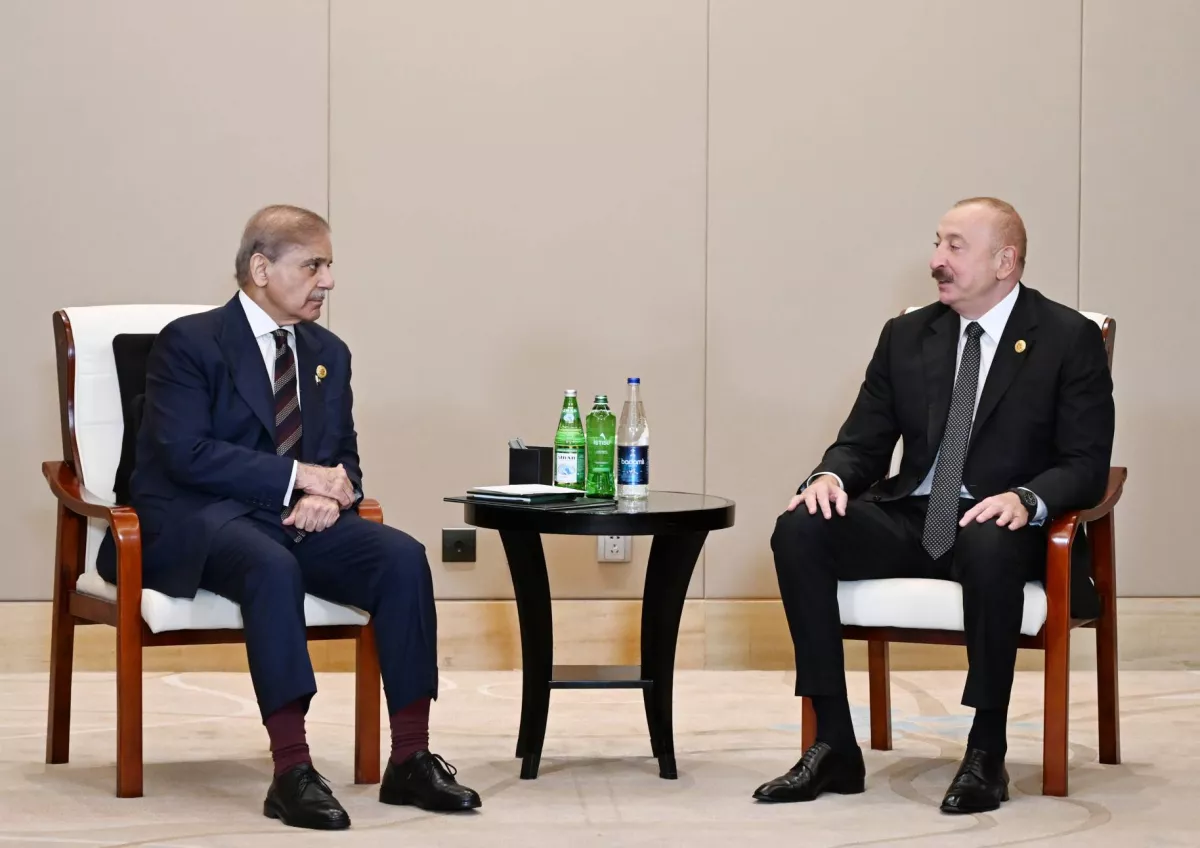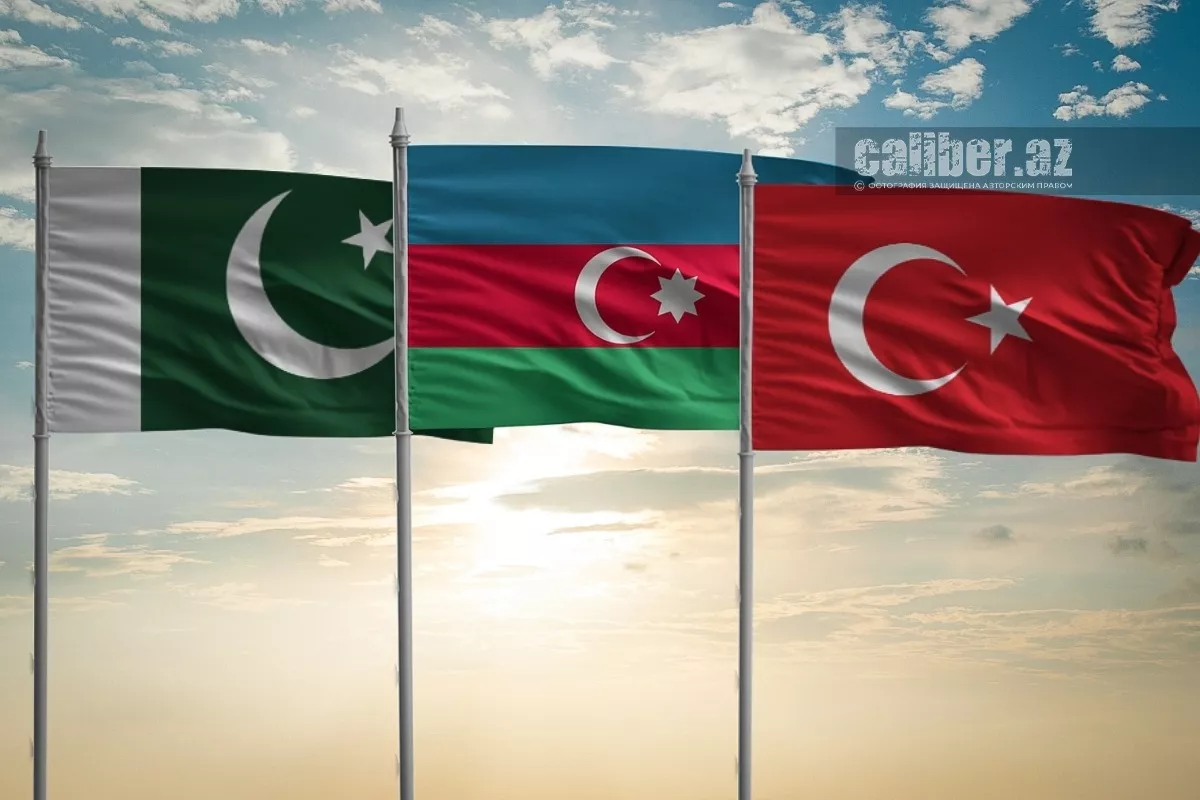Bollywood grudge: Revenge instead of a future strategy India is messing with Azerbaijan
Relations between Azerbaijan and India can no longer be called simple. Moreover, in recent years, the trajectory of these relations has increasingly taken on the character of a sharp diplomatic confrontation, in which personal grudges and revenge on India’s part have come to the forefront, rather than economic interests.
New Delhi’s constant irritation stems from Baku’s support for Islamabad on Kashmir, which, combined with Pakistan’s solidarity with Azerbaijan regarding its territorial integrity and the post-war settlement in Karabakh, creates a strong and unambiguous axis of cooperation.
It is precisely this alliance that has led India, over the past several years, to take measures aimed at limiting Baku’s opportunities on the international stage.
A striking example of this dynamic was today’s meeting between Azerbaijani President Ilham Aliyev and Pakistani Prime Minister Shehbaz Sharif in Tianjin, China. Ilham Aliyev stated that Azerbaijan-Pakistan relations are founded on brotherhood and congratulated Pakistan on its victory over India. The president emphasised that India is attempting to take revenge on Azerbaijan through international organisations, but this holds no significance for the country, as Azerbaijan prioritises fraternal relations above all else. His words serve as a direct challenge to India, which had hoped to leverage international mechanisms to pressure Azerbaijan, only to face Baku’s firm stance.

One of the clearest examples of New Delhi’s obstructive policy is the current situation within the Shanghai Cooperation Organisation (SCO). Despite support from China, India once again blocked Baku’s application for full membership, contradicting the principles of multilateral diplomacy and the “Shanghai spirit.” As a political analyst and head of the South Caucasus Research Centre, Farhad Mammadov noted on his Telegram channel, “India does not accept a peaceful agenda, and the fascist Modi regime, having lost the war with Pakistan, seeks to perpetuate conflicts. This is the second time India has, through its behaviour, blocked China’s initiatives to expand organisations and enhance the effectiveness of international structures.”
Unlike India, which demonstrates stubborn short-sightedness, Azerbaijan and Pakistan exhibit a constructive approach. A vivid example of this is Pakistan’s willingness to consider establishing diplomatic relations with Armenia despite existing disagreements. In other words, while Pakistan and Azerbaijan are open to exploring new diplomatic avenues, India continues to play the role of a disruptor, attempting to undermine the very effectiveness of multilateral structures.
In practice, New Delhi’s actions harm not only Azerbaijan but the Shanghai Cooperation Organisation (SCO) itself, seeking to turn it into a stage for settling scores. In the long term, such an approach is unlikely to yield dividends for India; on the contrary, it diminishes its authority and increases distrust among other members, including China, which has openly supported Azerbaijan’s application. In a context where Beijing is interested in expanding the SCO and strengthening its role as a platform of global significance, India’s behaviour appears particularly clumsy and shortsighted.
Meanwhile, Azerbaijan demonstrates a diametrically opposite approach. Despite blockades and diplomatic obstacles, Baku avoids confrontation and instead builds long-term connections with key global centres. The country’s growing transport and logistics significance, the development of energy projects, and the strengthening of ties with Türkiye, China, the United States, and the European Union all show that Azerbaijan is confident in its capabilities and does not allow external pressure to alter its course. This marks a fundamental difference between Baku’s strategic vision and New Delhi’s policy, which is largely driven by short-term, revenge-oriented motives.

In recent years, India has increasingly shown a willingness to use international organisations as tools to advance solely its own interests, often disregarding the need to maintain a balance of power and uphold the spirit of collective cooperation. Such an approach may yield tactical gains, but strategically it inevitably leads to isolation. This is precisely what is happening now: by blocking Azerbaijan, India does not weaken it; on the contrary, it pushes Baku toward even closer cooperation with Pakistan and China, which may create additional challenges for New Delhi in the long term.
Today’s Azerbaijan is in a vastly different position than it was ten or even five years ago. It has become an independent regional power, equipped with resources, infrastructure, and alliances that make it resilient to such diplomatic manoeuvres. Therefore, India’s attempts to impose restrictions on Baku are doomed to fail. Moreover, they only strengthen Azerbaijan’s resolve to continue its chosen course and demonstrate a commitment to the principles of brotherhood and strategic partnership, primarily with Pakistan.
We are thus witnessing a situation in which India’s short-sighted policies are turning against itself. Azerbaijan not only continues on its chosen path but also gains additional motivation to strengthen ties with key global players and enhance its role on the international stage.
India, in its attempt to “take revenge” for the Azerbaijan-Pakistan alliance, ultimately loses the opportunity to consolidate its own position and undermines its image as a responsible actor in global politics. In a rapidly changing world, such a stance increasingly resembles the reaction of a losing side and is fundamentally flawed.
In effect, India’s policy towards Azerbaijan today resembles a game where the player makes moves not to win, but to seek revenge. In diplomacy, however, victory belongs not to those who obstruct others, but to those who know how to build connections. In this game, Azerbaijan is clearly ahead.








